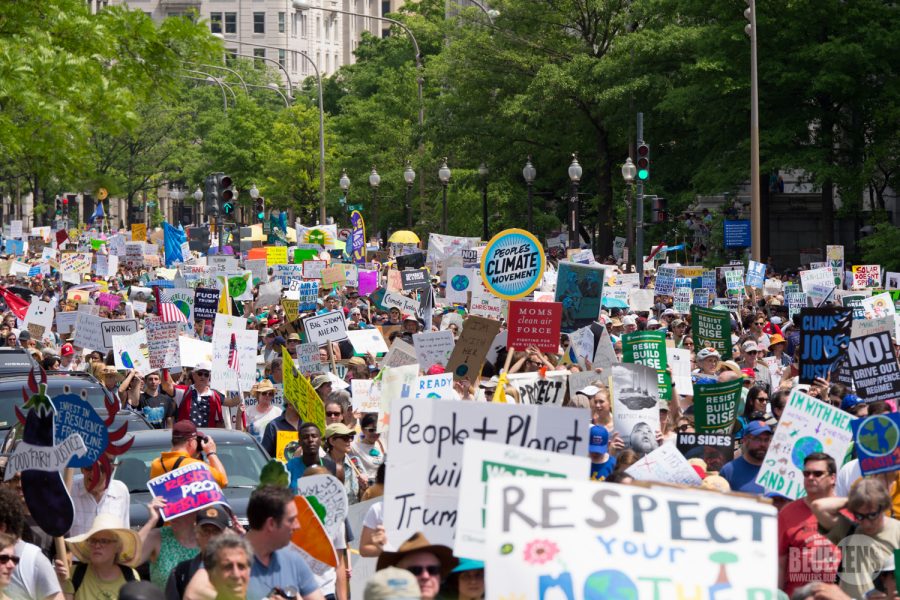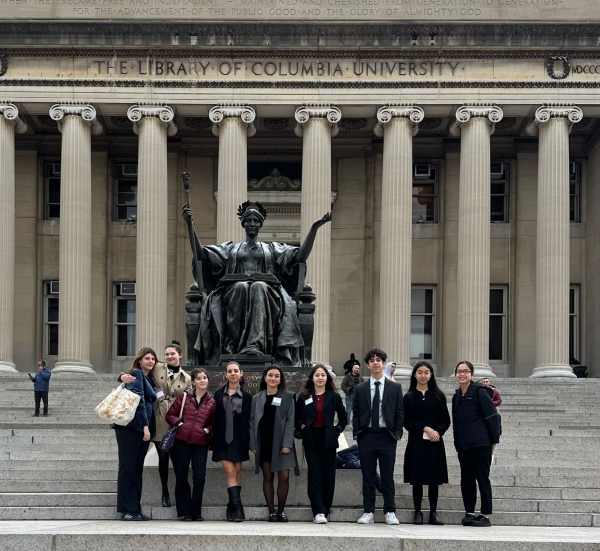On Greta Thunberg: How the Youth React to Climate Change
Greta Thunberg is a 16-year-old Swedish climate activist who has gained international recognition as the foremost figure of the youth’s response to climate change. Thunberg has struggled with mental health since she was eight years old and upon hearing about climate change. In a TEDx talk from last year, she said, “I was diagnosed with Asperger’s syndrome, OCD and selective mutism. That basically means I only speak when I think it’s necessary. Now is one of those moments.” In fact, she feels that her selective mutism has allowed her words to have an even greater impact as a climate activist. Thunberg began her school climate strikes in late 2018, and in the same year, she traveled to the Americas and began meeting with other climate activists. As reported in Vox last September, 4 million people participated in climate strikes worldwide. Thunberg has inspired many in what is known as “The Greta Effect,” raising young people’s awareness on the issue of climate change, thus empowering them to take action.
While Thunberg is an example of an individual who is pushing the movement forward, there are a number of youth organizations dedicated to contributing to the global effort to enact change. Zero Hour is a non-profit organization focused on environmental issues, using technology to advocate for climate justice. Other similar organizations exist, and this is necessary because the younger generations will have to deal with the consequences of climate change long after those in power are gone. Environmental action will be a significant topic of interest in upcoming elections, as the younger generations will be voting and according to The Conversation, a majority consider climate action to be a priority. There has been criticism towards Greta and the movement in general, especially by political figures including Donald Trump, Vladmir Putin, and Jair Bolsonaro, who have called her “misinformed” and “unscientific,” in addition to major oil companies who view her as a threat to industry. However, with the rise of social media, many young climate activists have been able to voice their opinions and raise awareness on these important issues.
Often times, young people may feel that they don’t have the power to make a change in the world. However, Thunberg is an example of a young person who has been able to make a change, thus inspiring other young people to do the same and realize that they too can make a difference. The Fridays For Future movement, in which students take Fridays off to protest climate change, is an excellent example of youth climate action, and how if everyone does their part, it can have a massive impact on the movement and its progress as a whole.
Some UNIS students were interviewed on their opinions about Greta Thunberg and the effect she has had on young people. The UN has been a pioneering organization in climate rights and environmental action, which is why UNIS students may feel particularly strongly about the topic. Alexandra Zandamela in T4 says, “Greta Thunberg is a really good example of how young people are becoming more aware of global issues and concerned for their futures.” Lamiya Taheraly, also a T4 student, says about Thunberg, “I think she has kind of become a large voice, not only for the youth but also for people on the spectrum. She made many people feel more passionate about climate change and influenced many to take action.” Lastly, Student Council President, Won-Jae Chang, states, “I find climate change a pressing issue, of course, because of its direct impact on millions around the world, including ourselves. We can see this in rising sea levels, in air pollution, in extreme weather conditions, and more. But at the same time, it’s easy to maintain a rather lazy stance on the issue.” He continued, “The idea that ‘because we are youth, we can’t really do anything about it,’ or ‘small acts won’t change anything, so why bother.” People think going to marches and protests will change something, but they do not really take initiative themselves. So youth are divided in caring about the issue, but also being lazy and picking the easier option by not doing anything at all when it comes to enacting actual change.”
At UNIS, there are many ways to participate in the global climate movement, from writing about it in UNISVerse, to joining one of the many environmental clubs offered, or advocating for climate rights in UNIS-UN. The important thing to consider, as Thunberg reminds us, is that everyone has the power to enact their own form of change, and that it is never too late to start taking action.












